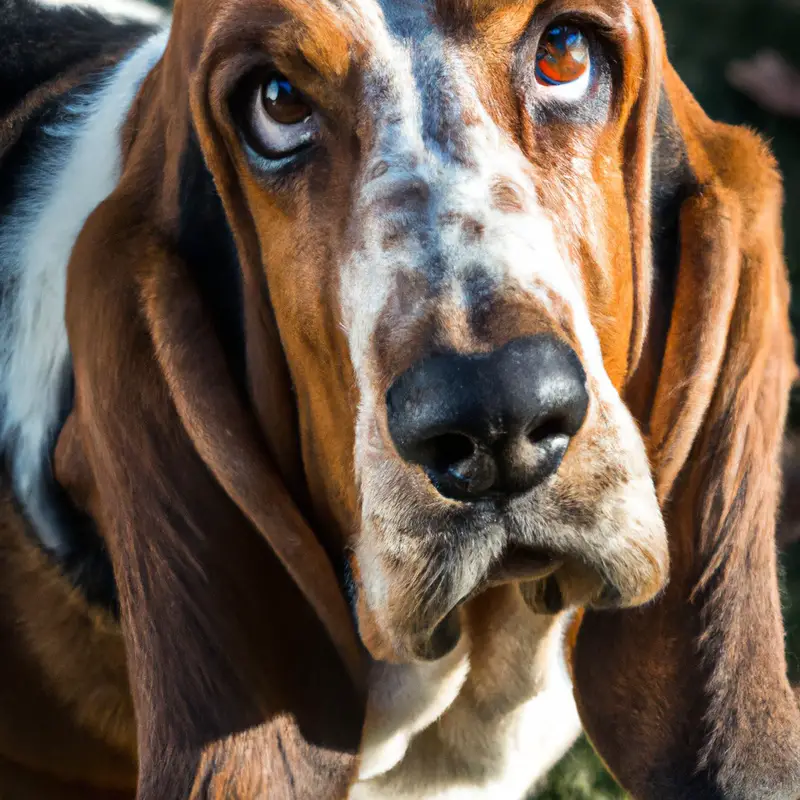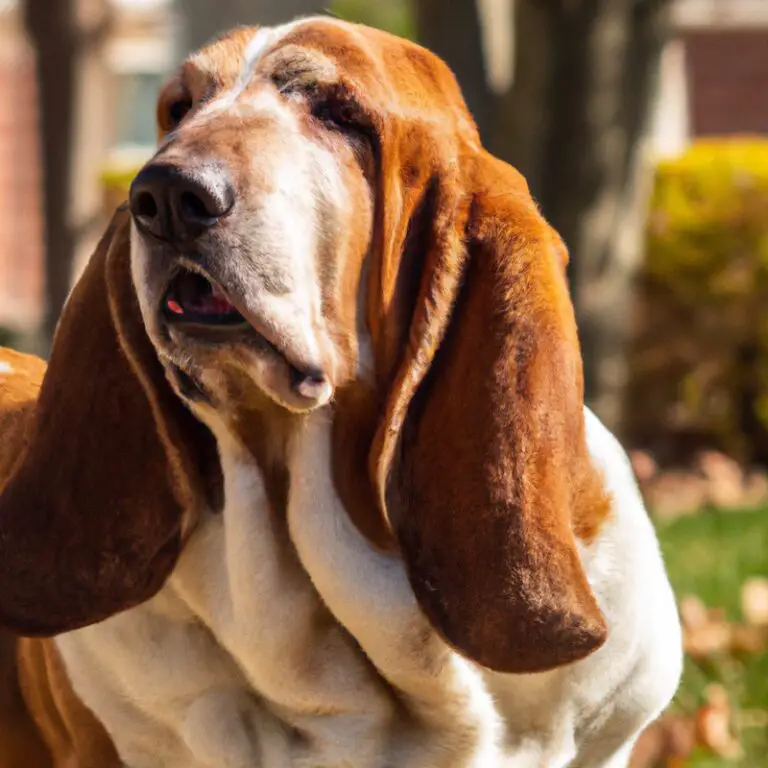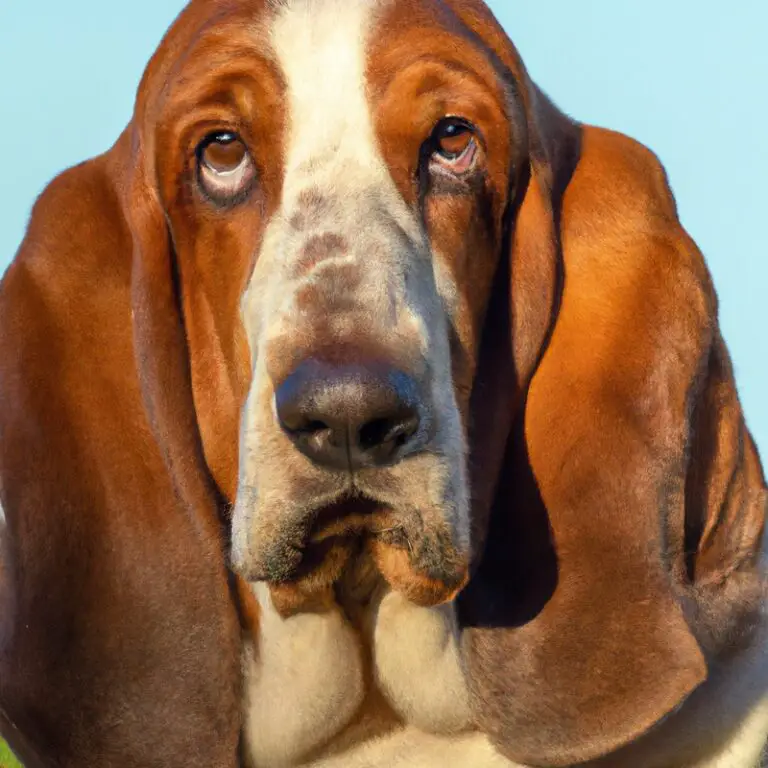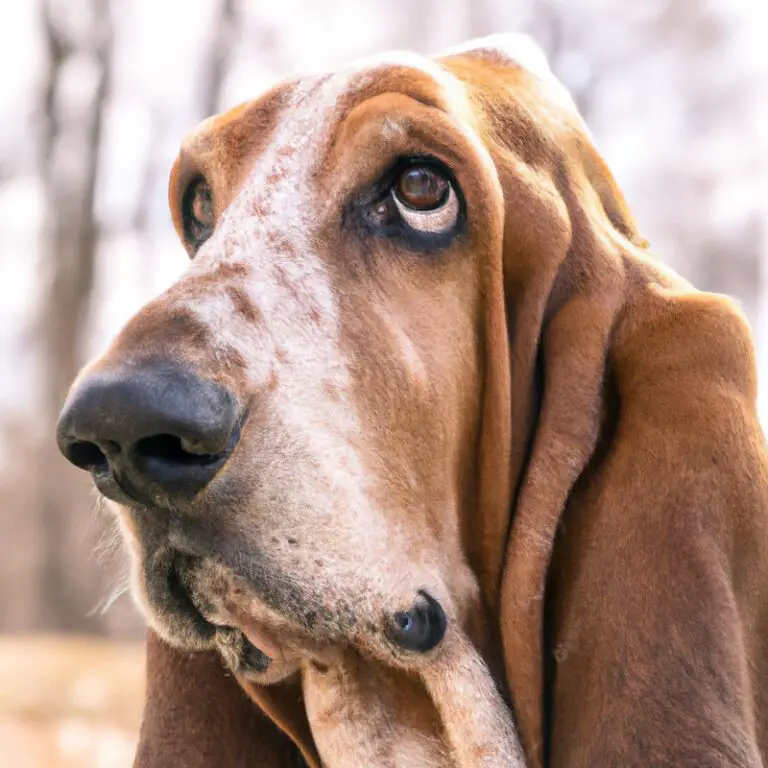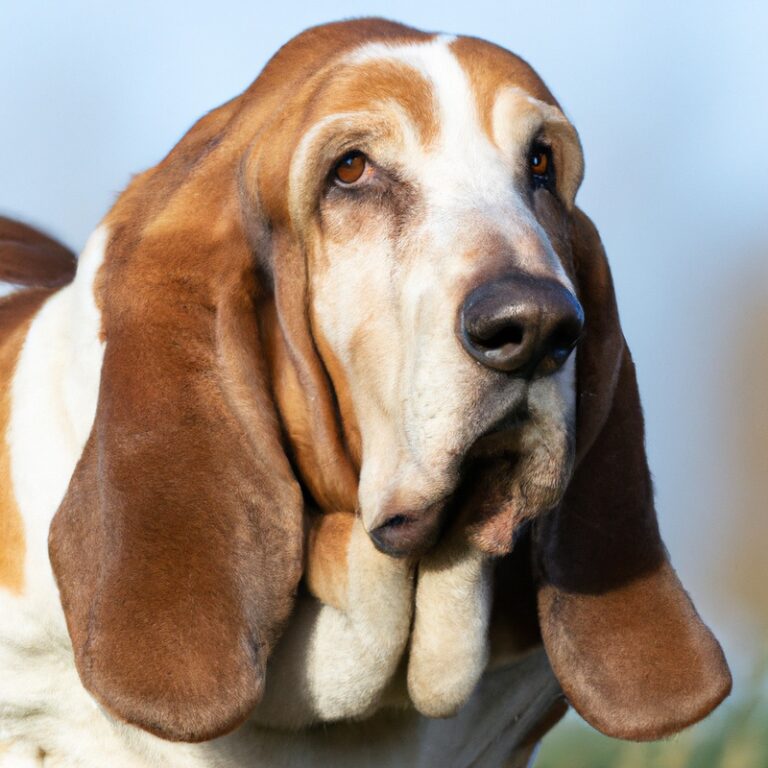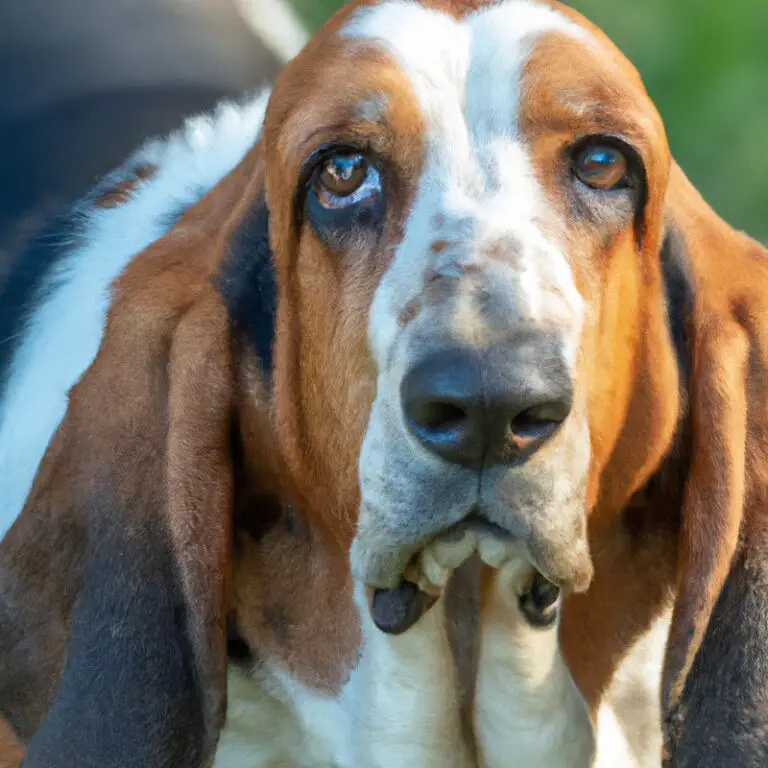What Are The Exercise Needs Of An Adult Basset Hound?
Key Takeaways:
- Adult Basset Hounds have low exercise needs due to their size and energy levels.
- Daily short walks and playtime are sufficient to meet their exercise requirements.
- Basset Hounds are prone to obesity and should be monitored to prevent excessive weight gain.
- Mental stimulation through puzzle toys or training exercises can be beneficial for their overall well-being.
Are you the proud owner of a lovable and droopy-eyed Basset Hound?
If so, you know just how important it is to keep this breed happy and healthy.
But what exactly are the exercise needs of an adult Basset Hound?
As an expert in canine fitness, I’m here to shed some light on this topic.
In this article, we’ll explore the unique breed characteristics of Basset Hounds, the importance of regular exercise, and the factors that can affect their exercise needs.
Plus, I’ll provide you with some recommended exercise activities that your Basset Hound will absolutely love.
So let’s dive in and make sure your furry friend gets the exercise he needs to thrive!
| Exercise Needs of an Adult Basset Hound | |
|---|---|
| Exercise Level | Low |
| Duration per Day | 30 minutes to 1 hour |
| Exercise Type | Gentle Walks |
| Frequency | At least once a day |
| Intensity | Low to moderate |
| Physical activity outlets | Secure outdoor area or walks in a leash |
| Playtime | Regular short play sessions |
Exercise requirements of adult Basset Hounds
Understanding the breed characteristics
Basset Hounds are known for their low energy levels and potential health issues.
Their long bodies and short legs may affect their exercise capacity.
They have a tendency to be laid-back and may not require as much exercise as some other breeds.
Understanding these breed characteristics is important when it comes to meeting their exercise needs effectively.
Importance of regular exercise
Regular exercise is crucial for adult Basset Hounds to maintain physical and mental well-being.
It helps them maintain a healthy weight, which is important for preventing obesity and related health issues.
Exercise also promotes cardiovascular fitness and muscle tone, keeping them strong and agile.
Moreover, it helps manage their behavioral issues and provides mental stimulation.
Engaging in regular exercise with your Basset Hound will ensure a happy and healthy life for your furry friend.
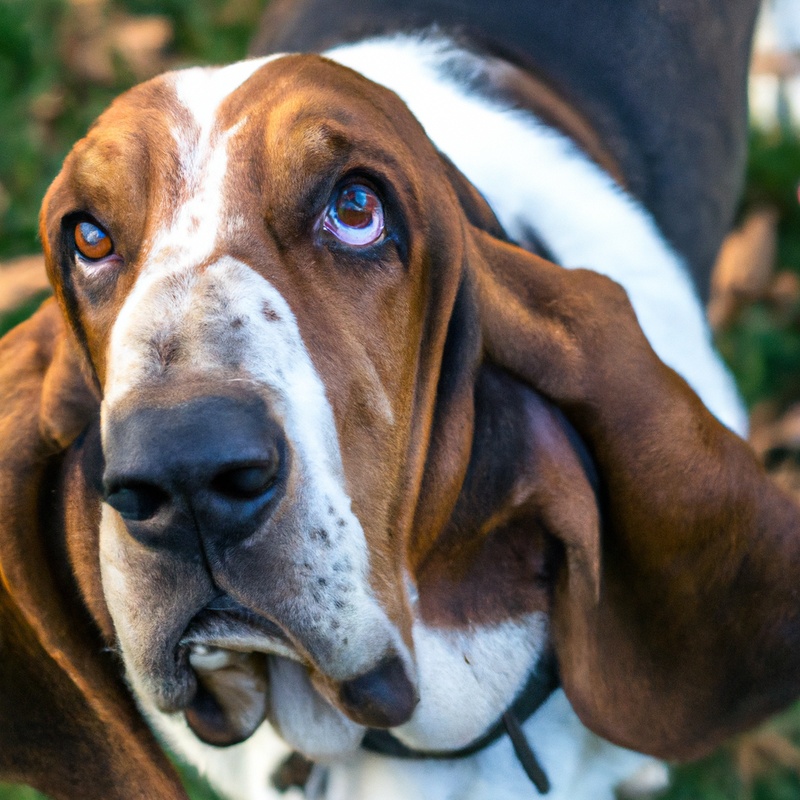
Factors affecting exercise needs
There are several factors that can affect the exercise needs of adult Basset Hounds.
Some of these factors include age, size, and overall health condition.
Each dog is unique, so it’s important to consider their individual activity level and personality traits.
Additionally, the owner’s lifestyle and the available space for exercise also play a role.
It’s important to take these factors into account when determining the appropriate amount and type of exercise for your Basset Hound.
Recommended exercise activities
To keep your adult Basset Hound healthy and happy, it’s important to provide them with regular exercise. Here are some recommended activities:
- Daily walks and gentle jogging: Basset Hounds enjoy leisurely walks, but they can also handle some light jogging. It’s best to avoid high-impact activities to protect their joints.
- Interactive play sessions and mental stimulation: Engage your Basset Hound with interactive toys and games that challenge their mind and provide mental stimulation.
- Moderate intensity training sessions: Basset Hounds are intelligent and benefit from regular training sessions. Teach them new tricks or work on obedience training for both physical and mental exercise.
- Swimming and other joint-friendly exercises: If you have access to a pool or a safe body of water, swimming is a fantastic low-impact exercise for your Basset Hound. Other joint-friendly activities like slow-paced hikes can also be beneficial.
Remember to tailor the exercise routine to your Basset Hound’s individual needs and consult with a veterinarian to ensure you’re meeting their specific requirements.
Breed characteristics of Basset Hounds
Low energy levels and potential health issues
Basset Hounds are known for their low energy levels, which can affect their exercise needs.
They tend to be more sedentary and may require less physical activity compared to other breeds.
However, this can also make them prone to weight gain and potential health issues such as obesity, joint problems, and digestive issues.
It is important to monitor their diet and provide regular exercise to keep them healthy and prevent any health issues from arising.
Consulting a veterinarian can help determine the appropriate exercise routine for your Basset Hound.
Physical attributes affecting exercise capacity
A Basset Hound’s physical attributes can significantly impact their exercise capacity. Their long, low bodies and short legs make them prone to fatigue and joint strain.
Additionally, Basset Hounds have a tendency to gain weight easily, which further affects their ability to engage in physical activities.
These characteristics require careful consideration when planning an exercise routine for your adult Basset Hound. It’s important to choose low-impact activities that provide enough exercise without putting excess strain on their bodies.
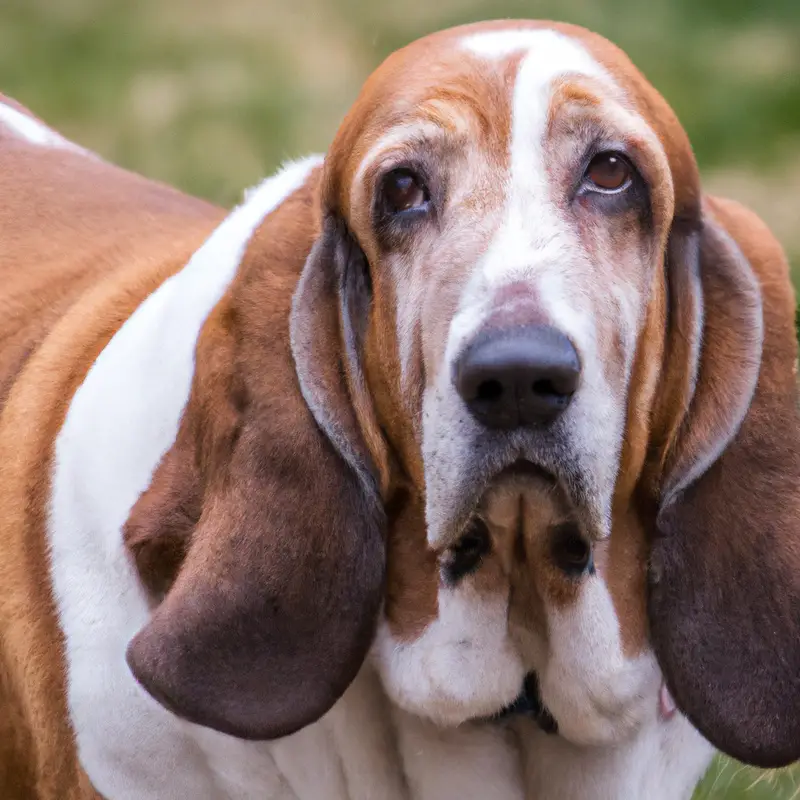
Behavioral tendencies and exercise preferences
Basset Hounds have a laid-back and independent temperament, which can affect their exercise preferences.
They are generally low-energy dogs and tend to enjoy leisurely walks, rather than intense physical activities.
Basset Hounds have a keen sense of smell and may prefer mental stimulation, such as scent games or puzzle toys.
It’s important to tailor their exercise routine to their individual needs and monitor their energy levels, as they can be prone to weight gain if not given proper exercise.
Importance of regular exercise for adult Basset Hounds
Maintaining a healthy weight and preventing obesity
Maintaining a healthy weight is vital for adult Basset Hounds to prevent obesity.
Obesity can lead to various health issues, including joint problems and heart disease.
To keep your Basset Hound in good shape, provide a balanced diet and portion control.
Regular exercise is key, such as daily walks and interactive play sessions.
Avoid overfeeding and limit treats to maintain a healthy weight for your furry friend.
Talk to your veterinarian for personalized advice on diet and exercise.
Promoting cardiovascular fitness and muscle tone
Regular exercise is beneficial for promoting cardiovascular fitness and muscle tone in adult Basset Hounds. Engaging in activities such as daily walks, jogging, and swimming can help improve their heart health and overall endurance.
These exercises also contribute to strengthening their muscles, leading to better stability and agility.
It is important to gradually increase the intensity and duration of exercise to avoid over-exertion and provide ample rest and recovery time for optimal results. Always consult with a veterinarian to ensure a suitable exercise plan for your Basset Hound’s specific needs and health condition.
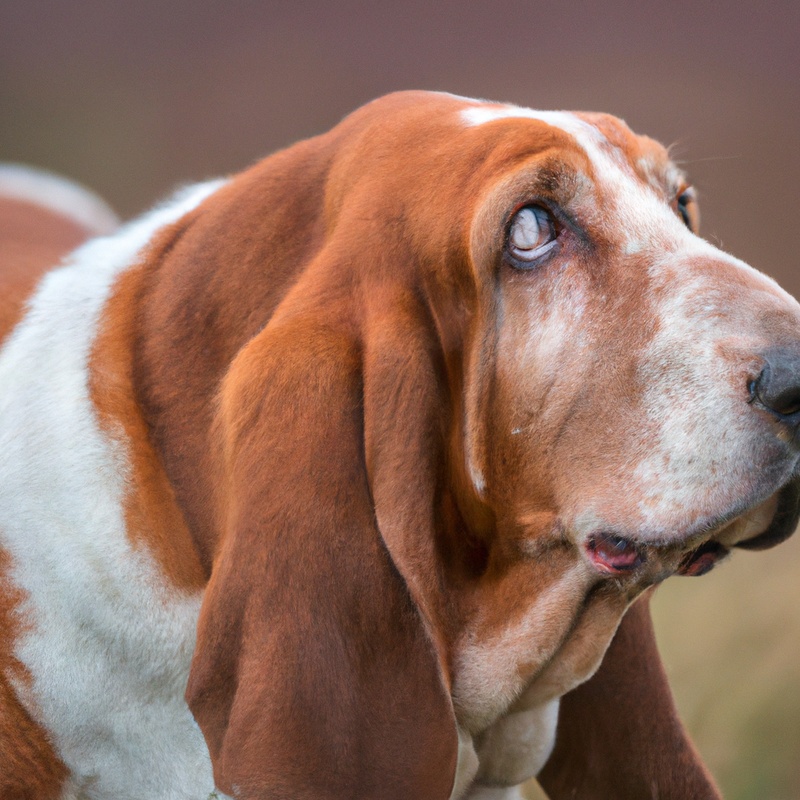
Managing behavioral issues and mental stimulation
Managing behavioral issues and providing mental stimulation is essential for the overall well-being of adult Basset Hounds.
Engaging in regular exercise can help address behavioral problems such as excessive barking, destructive chewing, and separation anxiety.
Additionally, mental stimulation through interactive play, puzzle toys, and training sessions can prevent boredom and improve their cognitive abilities.
These activities will not only keep your Basset Hound physically fit but also promote a happy and well-balanced temperament.
Factors affecting exercise needs
Age, size, and overall health condition
When it comes to the exercise needs of an adult Basset Hound, factors such as age, size, and overall health condition play a significant role. As Basset Hounds age, their exercise requirements may decrease due to decreased energy levels or potential health issues.
Similarly, a Basset Hound’s size can affect their exercise capacity, as their long bodies and short legs may limit their endurance.
Additionally, the overall health condition of a Basset Hound should be taken into consideration, as certain health conditions may require modifications to their exercise routine.
Individual activity level and personality traits
Understanding an adult Basset Hound’s individual activity level and personality traits is key to meeting their exercise needs.
Some Basset Hounds may have a higher energy level and enjoy more active play, while others may prefer a more relaxed, low-key lifestyle.
Personality traits can also influence their exercise preferences – some may enjoy interactive games and training sessions, while others may prefer leisurely walks or swimming.
It’s important to tailor their exercise routine to their specific needs and preferences for a happy and healthy Basset Hound.
Owner’s lifestyle and available space for exercise
The owner’s lifestyle and the available space for exercise play a significant role in meeting the exercise needs of an adult Basset Hound.
If you lead an active lifestyle and have ample space, such as a large backyard or access to nearby parks, it becomes easier to provide your Basset Hound with the necessary exercise.
You can engage in activities like daily walks, jogging, interactive play sessions, and training exercises.
However, if you have a busy lifestyle or limited space, it may require some creativity and planning to ensure your Basset Hound gets enough exercise.
Recommended exercise activities for adult Basset Hounds
Daily walks and gentle jogging
Daily walks and gentle jogging are excellent exercise activities for adult Basset Hounds.
These low-impact exercises help in maintaining their overall fitness and mental stimulation.
Taking your Basset Hound for daily walks allows them to explore their surroundings, fulfill their natural instinct to sniff, and socialize with other dogs and people.
Gentle jogging can be introduced gradually to provide additional cardiovascular exercise.
Remember to start slow and gradually increase the duration and intensity of the exercise to prevent any strain or injuries.
Interactive play sessions and mental stimulation
For adult Basset Hounds, interactive play sessions and mental stimulation are key to keeping them happy and engaged.
These activities not only provide physical exercise but also challenge their minds.
You can engage in games like hiding treats for them to find or playing with puzzle toys that require problem-solving skills.
Additionally, interactive play with toys such as tug-of-war or fetch can help satisfy their natural instincts.
Varying the activities and introducing new toys regularly will prevent boredom and keep their minds sharp.
Moderate intensity training sessions
Moderate intensity training sessions are a great way to meet the exercise needs of adult Basset Hounds. This type of training helps to keep them active and engaged without putting too much strain on their bodies.
Some examples of moderate intensity exercises for Basset Hounds include brisk walks, light jogging, and controlled play sessions.
These activities provide a good balance of physical exercise and mental stimulation for your furry friend. Remember to always consider your dog’s individual needs and consult with a veterinarian before starting any exercise routine.
Swimming and other joint-friendly exercises
Swimming is an excellent exercise for adult Basset Hounds because it is low-impact and easy on their joints.
The water supports their bodies, reducing strain on their bones and muscles.
It also provides a full-body workout, helping to strengthen their muscles and improve cardiovascular fitness.
Other joint-friendly exercises for Basset Hounds include gentle walks, slow-running or jogging, and interactive play sessions.
These activities help keep them physically active without putting too much stress on their joints.
Important considerations for exercise routines
Gradual increase in intensity and duration
When it comes to exercise routines for adult Basset Hounds, it is important to gradually increase the intensity and duration. This allows their bodies to adapt and build endurance over time.
Starting with shorter walks or play sessions and gradually increasing the time and intensity will help prevent fatigue or injury.
It’s crucial to pay attention to your Basset Hound’s cues and monitor their energy levels during exercise. By gradually increasing intensity and duration, you can ensure a safe and effective exercise routine for your furry friend.
Providing ample rest and recovery time
Basset Hounds, like any other dog, need ample rest and recovery time after exercise.
This is important for their overall health and well-being.
Providing enough rest allows their muscles to recover and prevents the risk of overexertion or injury.
It also gives them the mental and physical recharge they need.
After a workout or play session, make sure to give your Basset Hound a comfortable place to rest and relax.
Pay attention to any signs of fatigue or exhaustion and adjust their exercise routine accordingly.
Remember, rest is just as important as exercise!
Adjusting exercise routine with age and health changes
As your beloved Basset Hound ages or experiences changes in health, it’s important to adjust their exercise routine accordingly. When it comes to age, older dogs may require shorter and less intense exercise sessions to avoid overexertion.
Similarly, if your dog is recovering from an injury or dealing with a health condition, consult with your veterinarian to determine appropriate exercise modifications.
By understanding and accommodating these changes, you can ensure your Basset Hound stays healthy and happy for years to come.
Signs of inadequate exercise or over-exertion
Weight gain or loss
Weight gain or loss can be an indicator of inadequate exercise for adult Basset Hounds.
If a Basset Hound is not getting enough physical activity, they may become overweight.
On the other hand, if they are being over-exerted, they may experience weight loss.
Monitoring their weight regularly and adjusting their exercise routine accordingly is important to maintain their overall health and well-being.
Talk to a veterinarian for guidance on appropriate exercise levels for your Basset Hound.
Destructive behavior or excessive barking
Destructive behavior or excessive barking can be signs that your adult Basset Hound is not getting enough exercise.
Bassets are active dogs that need regular physical and mental stimulation to stay happy and content.
When they don’t get enough exercise, they may become bored and resort to destructive behaviors like chewing furniture or excessive barking.
Providing them with daily walks, interactive play sessions, and mental stimulation can help prevent these behaviors.
If you notice your Basset Hound exhibiting destructive behavior or excessive barking, it may be a sign that they need more exercise in their routine.
Consulting a veterinarian can also help address any underlying issues and provide guidance for an appropriate exercise plan.
Changes in appetite or sleeping patterns
Changes in appetite or sleeping patterns can be indicators of inadequate exercise or over-exertion in adult Basset Hounds.
If your Basset Hound suddenly loses interest in food or sleeps excessively, it may be a sign that they are not getting enough physical activity.
On the other hand, if your Basset Hound’s appetite increases significantly or they have trouble sleeping, it could indicate that they are being over-exercised.
It’s essential to pay attention to these changes and adjust their exercise routine accordingly.
Consulting with a veterinarian can help determine the best course of action.
Muscle stiffness or limping
Muscle stiffness or limping in adult Basset Hounds can indicate the need for adequate exercise.
These symptoms may occur if the dog is not getting enough physical activity or has over-exerted itself.
Regular exercise helps to maintain muscle strength and flexibility, reducing the risk of stiffness and discomfort.
Additionally, exercise supports joint health and helps the Basset Hound maintain a healthy weight.
If you notice muscle stiffness or limping, it’s important to assess your dog’s exercise routine and make adjustments if necessary.
Consulting with a veterinarian can provide valuable guidance in managing these symptoms.
Consulting a veterinarian
Assessing individual exercise needs
Assessing the exercise needs of your adult Basset Hound is important for their overall well-being.
Start by considering their age, size, and overall health condition.
Observe their activity level and personality traits.
Take into account your own lifestyle and the available space for exercise.
It’s a good idea to consult with a veterinarian who can provide guidance specific to your dog’s needs.
By understanding your Basset Hound’s individual requirements, you can create an exercise plan that keeps them healthy and happy.
Addressing any underlying health concerns
Addressing any underlying health concerns is essential when considering the exercise needs of an adult Basset Hound.
Checking for any potential health issues such as joint problems, obesity, or respiratory conditions is crucial.
Regular visits to the veterinarian can help identify any underlying health concerns and allow for appropriate modifications to the exercise routine.
By addressing these concerns, you can ensure the safety and well-being of your Basset Hound during exercise activities.
Remember, the health of your furry friend should always be a top priority.
Seeking professional guidance for exercise plans
If you’re unsure about creating an exercise plan for your adult Basset Hound, seeking professional guidance from a veterinarian is a smart move.
A veterinarian can assess your dog’s individual needs, taking into consideration their age, health condition, and activity level.
They can also address any underlying health concerns that may affect the exercise routine.
With their expertise, you can develop a tailored exercise plan that ensures your Basset Hound stays healthy and happy.
So, don’t hesitate to consult a veterinarian for expert guidance on exercise plans for your furry friend.
Final Verdict
As a seasoned expert in dog care and behavior, I firmly believe that understanding the exercise needs of adult Basset Hounds is crucial for their overall health and well-being. Regular exercise not only helps manage their weight and prevent obesity but also promotes cardiovascular fitness, muscle tone, and mental stimulation.
Factors like age, size, and individual activity level should be considered when designing an exercise routine.
Recommended activities include daily walks, interactive play sessions, and moderate intensity training. Additionally, it is important to carefully monitor their exercise routine and consult a veterinarian for guidance to ensure their specific needs are met.
By providing adequate exercise, we can enhance the quality of life for these beloved companions.

